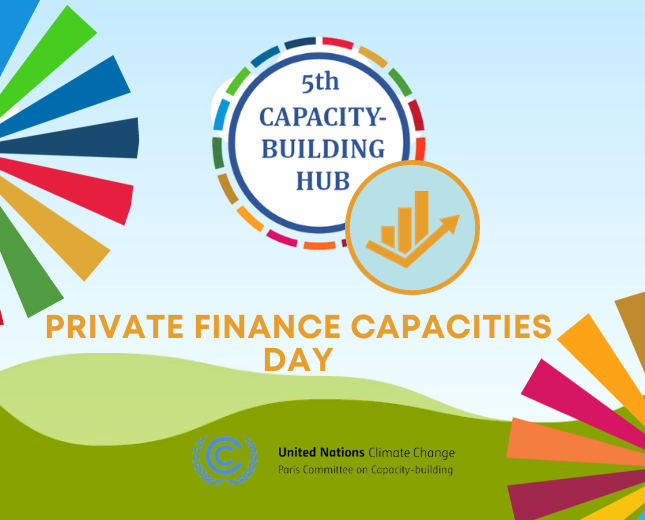Recording
Organizers
This session was organized by SMI FSTF, Barclays, HSBC, and Mangrove Breakthrough
Background
Nature based Solutions (NbS) are actions to protect natural ecosystems that benefit people whilst contributing to tackling climate change and protecting biodiversity. To date, NbS projects tend to be funded at a small scale by philanthropy or concessional finance, largely driven by the public sector. The share of positive flows for nature from private sources must grow from 15% to 50% by 2030. Life Below Water (SDG 14) is the least funded of the UN SDGs, despite the many ecosystem services that are becoming increasingly crucial to address climate change and nature (coastal resilience, carbon sink, livelihood). There is a strong body of science on the carbon asset opportunities of mangroves as compared to other ecosystems (e.g. temperate coastal), which serves as a strong pilot focus area.
The Sustainable Markets Initiative Financial Services Task Force (SMI FSTF) can play a leading role to accelerate the financing of and investment in coastal NbS by working across the SMI to refine and embed a shared framework to scale finance flows into coastal NbS projects and enable the growth of natural capital as an asset class.
For that, the SMI FSTF is working with the Mangrove Breakthrough (MB) initiative from the UN Climate Change High-level Champions to support the development of a set of guiding principles to facilitate private capital funds into NbS projects. The focus on the work is on coastal ecosystems as a well-known case study (yet still widely unfunded). The aim is to use these biomes as an example on actions that should be taken to support project developer in elevating their interventions to be investable and/or bankable.
A series of workshops have been organised or are planned until COP28, such as in the MB Workshop in Paris on June as part of the New Financial Pact Summit, a MB Workshop in Abu Dhabi, UAE, an event in the London Climate Action Week or one planned for the New York Climate Week. The main conclusions of this work so far, and that the working group is trying to address are:
-
There is a need to correctly price NbS in order to capture the value of ecosystem services and avoiding risk
-
Improving visibility and transparency of NbS is needed to ensure project quality and consistency
Objectives
The aim of this session was to showcase to a wider group the power of collaboration among private institutions, NGOs, and civil society in addressing biodiversity loss.
The end result of this work was to present two interconnected reports being prepared on this topic. The conclusions of these two reports were discussed in the session.
-
The Mangrove Breakthrough Financial Roadmap – developed by MB, with input from FSTF among other stakeholders: focusing on the case of mangroves and a Financial Roadmap to achieve the MB objectives.
-
‘Financing Coastal Nature-based Solutions’ – developed by Pollination and commissioned by HSBC and Barclays, with input from FSTF and other contributions: This report focused on the role financial institutions should play and the enabling environment needed for them to take a prominent role in private capital flowing into biodiversity conservation and restoration.
Structure
The session shared experiences, best practices, and case studies, as well as discussed challenges and solutions to remove barriers for higher volumes of private finance towards biodiversity conservation and restoration projects.
Speakers
|
Name
|
Affiliation/Organization
|
|
Laura Barlow
|
Barclays
|
|
Jenny McInnes
|
HSBC Plc.
|
|
Ignace Beguin
|
Climate Champions Team
|
Moderator
John Morton, Pollination
Key Outcomes
-
Scaling private capital into Nature and Biodiversity projects is complicated given the existing risk measuring mechanisms cannot properly price nature. Collaboration among industry practitioners (banks and other types of FIs) is key to removing barriers that increase financial flows.
-
The Financing Coastal Ecosystems Practitioners guideline by SMI FSTF and Pollination together with the Mangrove Breakthrough Finance Roadmap are two complementary tools that showcase how private organisations and other non-state actors can work together towards achieving a concrete target that will serve as an example of private capital into nature projects.
-
There are already some good examples of bankable projects mostly based on blue carbon credits, but there are still a lot of other projects that don't meet bankability criteria. Grouping them could potentially help achieve the scale they need, together with de-risking elements that could be provided by local governments, MBDs or Sovereign Wealth Funds.
Resources
Mangrove breakthrough financial roadmap
About SMI FSTF
